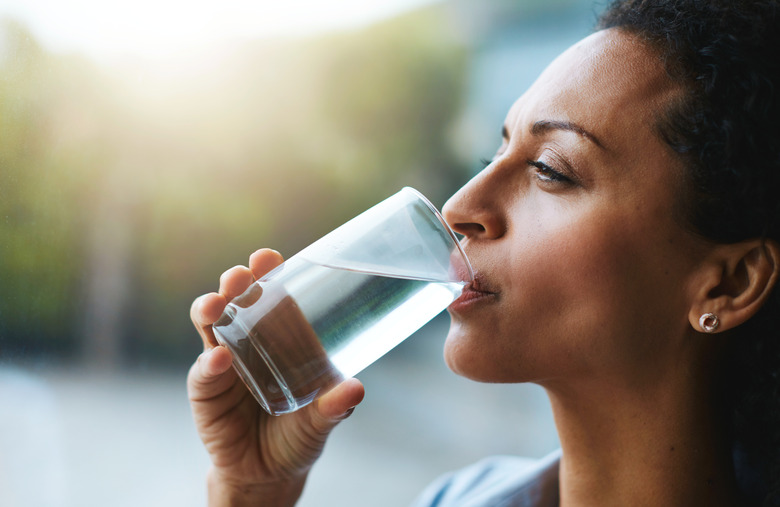How Much Water Should You Drink Every Day?
Hydration is important for your overall health — but how much water do you really need to drink in a day? It's easy to say that you should simply drink when you're thirsty. And while that is your body's main way of helping you stay hydrated, there are many scenarios in which that's not enough. Children might not be able to get water themselves or articulate their thirst, while seniors just might not realize the signs and side effects of dehydration. Did you know that our sense of thirst lessens and our kidneys aren't able to conserve water as well as we age?
40 Unhealthy Habits You Need to Ditch at 40
For years, you might've heard the handy "8x8" rule: Drink eight 8-ounce glasses of water a day. However, this persistent health myth actually has no scientific evidence behind it, according to a study from Dartmouth Medical School.
Water is vital for our bodies to function properly. Hydration affects everything from cognition to metabolism to mood. This is why many people want to know a hard and fast number for how much water to drink.
Unfortunately, there's no easy formula to determine your individual water needs. That's because how much water you should drink every day depends on a variety of factors, including your personal medical history, size, diet, activity level, altitude, climate and more.
For example, women who are pregnant or breast-feeding need extra fluids to stay hydrated. But people with certain health conditions such as heart failure might need to limit their fluid intake.
So the answer to how much water you should drink every day is: it's complicated. Thankfully, the National Academies of Sciences, Engineering, and Medicine recommends these guidelines as a jumping off point to help ensure you drink enough fluids: Men should drink about 15.5 cups (3.7 liters) in total a day, while women should drink about 11.5 cups (2.7 liters).
These recommendations are for total fluids, not just water. Other beverages, such as milk, juice, tea, and even coffee and soda are hydrating. Foods also provide 20 percent of your daily fluids. Many fruits and vegetables, such as watermelon and cucumber, are mostly water. Foods like soup, yogurt, tomato sauce and Jell-O are also full of water. These will help you reach your fluids goal, but that doesn't mean you should be trading you waterbottle for a Jello-O cup.
So if you are chugging water any chance you get, you might actually be overdoing it. Although it's rare, it is possible to drink too much water. Your kidneys can only process so much water an hour, and if they can't keep up, it can lead to a potentially deadly condition called hyponatremia.
Instead of obsessing about a specific number of cups, liters or bottles of water, listen to your body and the cues it's trying to give you and get an expert opinion on what your personal intake should be every day. Talk to your doctor about your lifestyle and any medical conditions or medications that could influence how much water you need. And be on the lookout for potential warning signs that you might be dehydrated.
